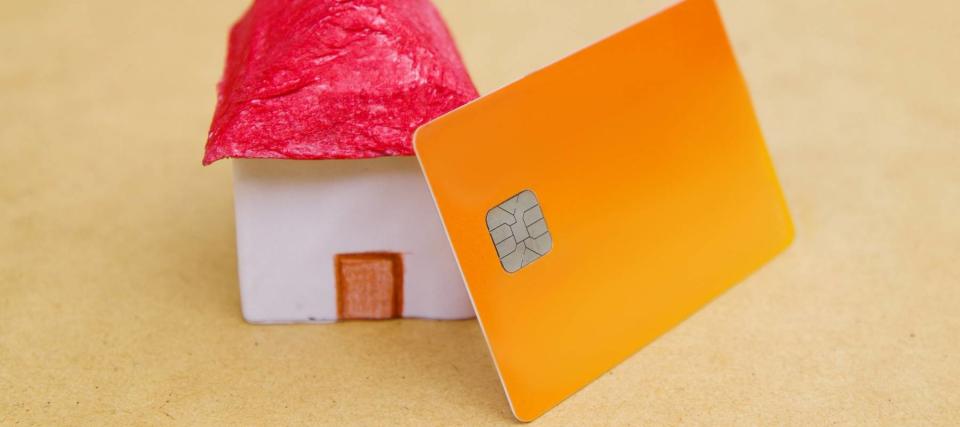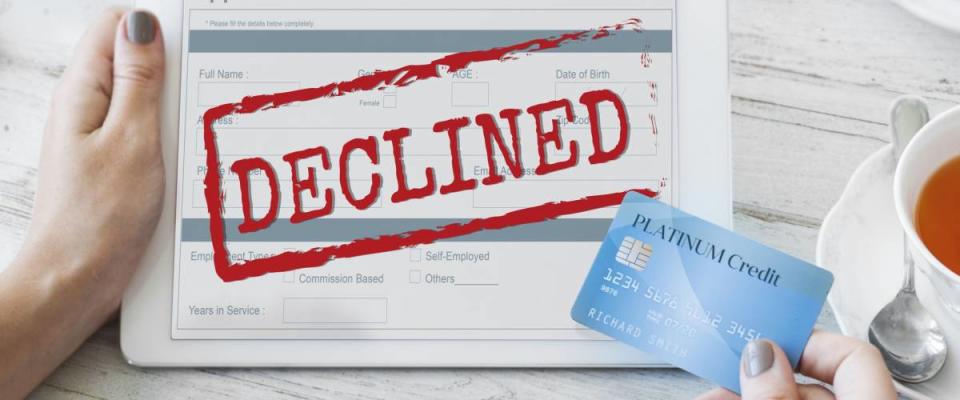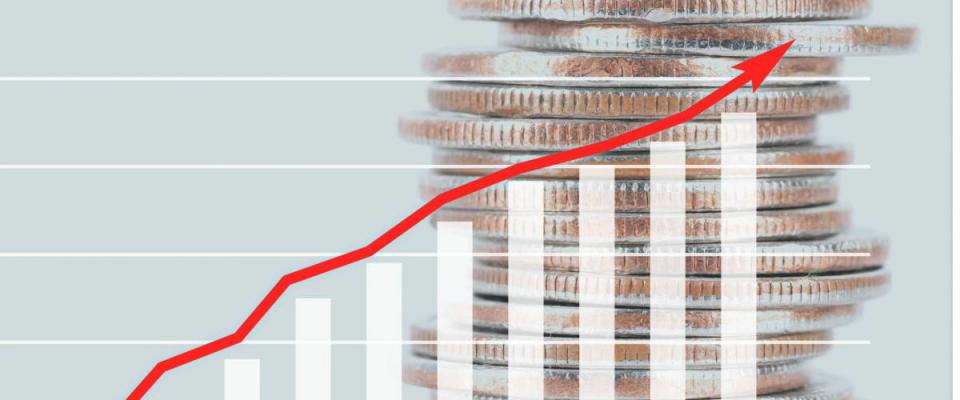Tempted to Pay Your Mortgage With a Credit Card? Not a Good Idea

Tempted to make your mortgage payments with a credit card, because it sounds like a way to send your rewards points through the roof? The more you look into the idea, the quicker you’ll see that it rarely makes financial sense.
In the end, it’s a game of numbers. You'll have to decide if the points you’re chasing outweigh the potential costs. That's if your mortgage lender is even willing to go along.
Here are six reasons why paying your mortgage with a credit card is probably a nonstarter.
1. Your mortgage lender likely won't allow it

Your mortgage lender may refuse to allow you to make payments with a credit card.
Most mortgage servicers won't allow borrowers to make their payments with a credit card.
Policies vary. But lenders generally prefer taking your cash over a transfer of debt.
A better conversation to have with your lender is whether you can refinance your loan — to take advantage current mortgage rates, which are at the lowest levels in three years.
2. Your credit card may not allow it either
Visa, Mastercard and American Express have no problem with cardholders making mortgage payments and collecting rewards points from the transactions.
However, Bank of America generally does not allow mortgages to be paid with the credit cards it issues.
Want more MoneyWise? Sign up for our newsletter.
3. You can use a go-between, but it'll cost you

A third-party service might help you make your payments.
You can get around any objections from your mortgage lender or credit card by using a third-party payment provider as a go-between.
These services accept your credit card payment, then cut a check to the mortgage lender. And, they charge a processing fee for the service — typically up to 3%. If your monthly mortgage payment is $1,000, the fee would be $30.
4. Your credit card might hit you with fees, too
Before using your credit card to pay either your lender or a third-party, you'll want to confirm with your card issuer that the payment will not go through as a cash advance.
Cash advances come with their own fees and a higher interest rate. Credit card purchases typically have an APR of 12% to 20%. The APR on cash advances can reach up to 25%.
5. Don't forget interest and other fees

Interest and other fees can raise the cost of making your mortgage payment by credit card.
If you're not able to pay off the mortgage charges put on your credit card each month, you'll be stuck paying interest, too. And if you load up your card with debt, you could have trouble getting rid of it — and damage your credit score.
If you're late with a card payment, you'll trigger additional fees and risk doing further harm to your credit score.
6. The math often just won't work
The best opportunity to use mortgage payments to leverage rewards is through a credit card's initial sign-up bonus. Many cards offer enticing bonus points if you spend a certain amount during the first few months.
The rewards might be worth the equivalent of up to 30% of what you spend. That could be more than enough to cover the various services fees and higher interest. But most rewards programs offer everyday returns of 2% or less.
If your returns from using the credit card are likely to be outweighed by the costs, put your credit card back in your wallet — and keep making your mortgage payments some other way.
Check today's best mortgage rates where you are.
